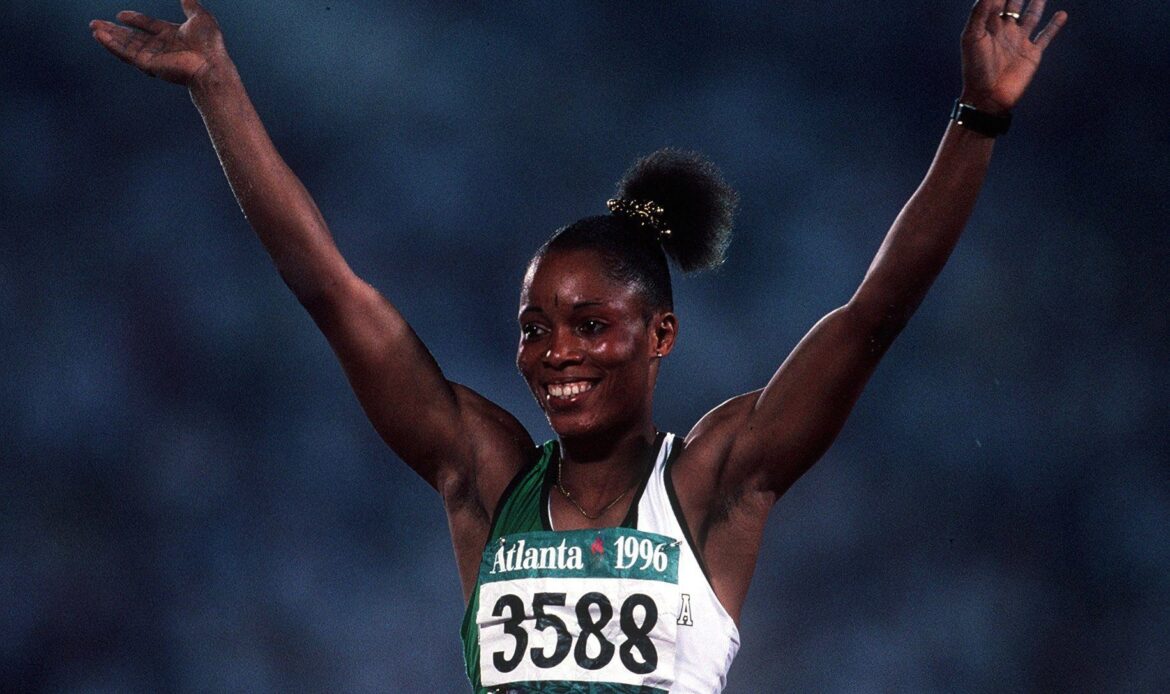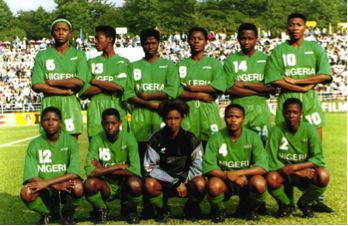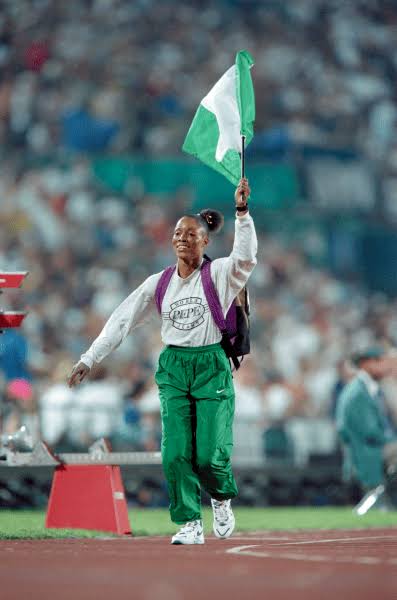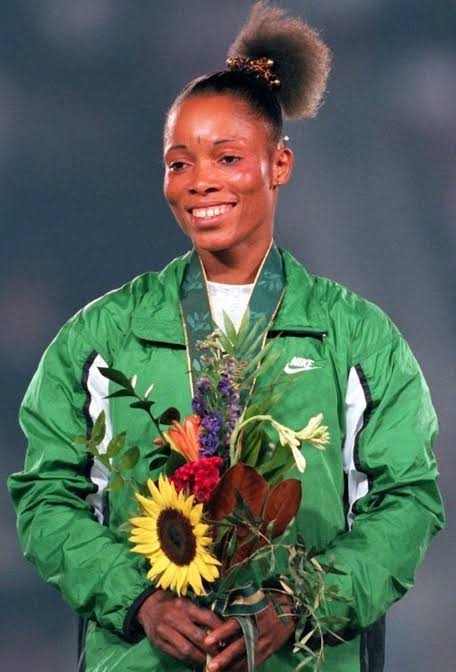
Imagine the adrenaline rush as you sprint down the track, the crowd’s roar echoing in your ears, every stride taking you closer to making history. For Chioma Ajunwa, this was not just a dream but a reality she crafted with unwavering determination and exceptional talent. Born on December 25, 1970, in Umuihiokwu, Nigeria, Ajunwa’s journey from a modest upbringing to becoming Nigeria’s first Olympic gold medalist is extraordinary.
Renowned for her achievements in athletics and her dedicated service in law enforcement, Ajunwa has transcended the sports world to become a symbol of national pride and perseverance. Let’s look at the inspiring life and career of Chioma Ajunwa, from her early days as a sprinter to her historic Olympic triumph.
Early Life and Challenges
Chioma Ajunwa’s early life was marked by hardship and determination. As the youngest of nine children, she grew up in a poor family and faced significant financial challenges. Her father’s death left her mother to support the family alone. Despite gaining admission to university at 18, Ajunwa had to forgo her studies due to financial constraints. Instead, she pursued training as an automobile mechanic, although her mother’s disapproval led her to abandon this path.
Read: Burna Boy Hits 2 Billion Streams in the UK
Ajunwa’s Transition to Football

Before making her mark in athletics, Ajunwa initially pursued a career in football. She played as an attacker for the Nigerian women’s team, the Falcons, during the 1991 Women’s World Cup. However, her football career was short-lived due to limited opportunities and consistent benching by the coach. Reflecting on this period, Ajunwa expressed no regret as she found her true calling in athletics.
Achievements in Track and Field

Ajunwa’s transition to track and field was a turning point in her career. Specializing in the 100m, 200m, and long jump, she quickly became a formidable athlete. Ajunwa’s early successes included winning a bronze medal in the 4×100 meters relay at the 1990 Commonwealth Games and gold medals in the long jump at the African Championships and the All-Africa Games.
In 1992, Ajunwa faced a significant setback when she was banned from the sport for four years after failing a drug test. Despite maintaining her innocence, she served her suspension and returned to the sport with renewed determination.
Olympic Glory: Chioma Ajunwa at Atlanta 1996

Ajunwa’s most significant achievement came at the 1996 Summer Olympics in Atlanta. Competing in the women’s long jump, she stunned the world with a leap of 7.12 meters on her first attempt, securing Nigeria’s first-ever Olympic gold medal. This historic win also made her the first black African woman to claim gold in a field event at the Olympics. Ajunwa’s victory brought immense pride to Nigeria and marked a milestone in the nation’s athletic history.
Read: Segun Toriola: The Legend of African Table Tennis
Recognition and Honors

Following her Olympic triumph, Ajunwa received several accolades. She was awarded the Member of the Order of Niger (MON) by then-Head of State Sani Abacha. In 2010, as part of Nigeria’s 50th Independence anniversary, President Goodluck Jonathan conferred the Golden Jubilee Independence Award on Ajunwa for her contributions to the country’s development. Additionally, Imo State honored her with a chieftaincy title, recognizing her achievements and impact.
A Career in Law Enforcement
After retiring from athletics, Ajunwa pursued a career in law enforcement. She joined the Nigerian Police Force and became an Assistant Commissioner of Police. Last year, she retired from the Nigeria Police Force after 35 years of meritorious service. Her dedication to sports and public service exemplifies her commitment to excellence and her country. In December 2017, Ajunwa launched the Chioma Ajunwa-Okpara Foundation to discover and nurture new Nigerian sports stars.

Anti-Doping Advocacy
Ajunwa has also been an active advocate against doping in sports. In 2010, she launched the “Compete Fair & Clean” campaign, promoting anti-doping awareness among athletes and coaches. Her efforts include delivering speeches, organizing workshops, and distributing educational materials to foster a clean and fair competitive environment.
Chioma Ajunwa’s journey from a humble background to becoming Nigeria’s first Olympic gold medalist is a testament to her resilience, determination, and exceptional talent. Her achievements in athletics and her contributions to law enforcement continue to inspire many Nigerians, particularly aspiring athletes, and women seeking to excel in traditionally male-dominated fields. Ajunwa’s legacy is one of perseverance and breaking barriers, and her impact on Nigerian sports will be remembered for generations.
